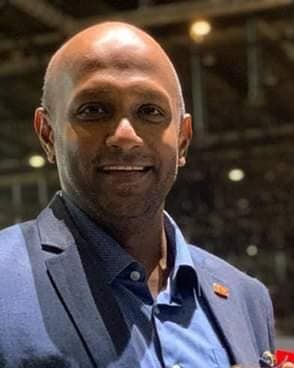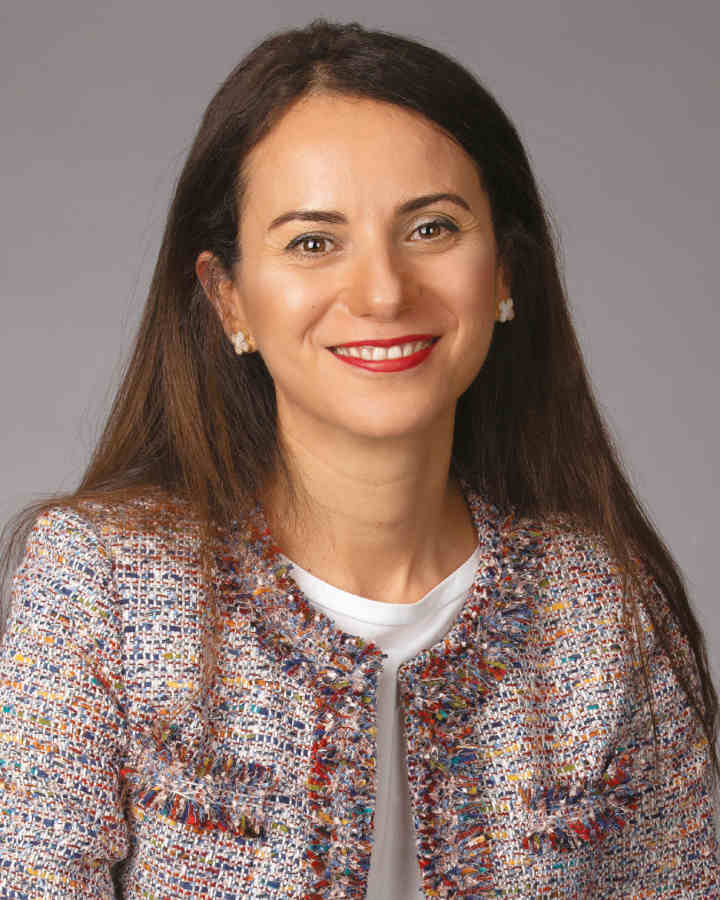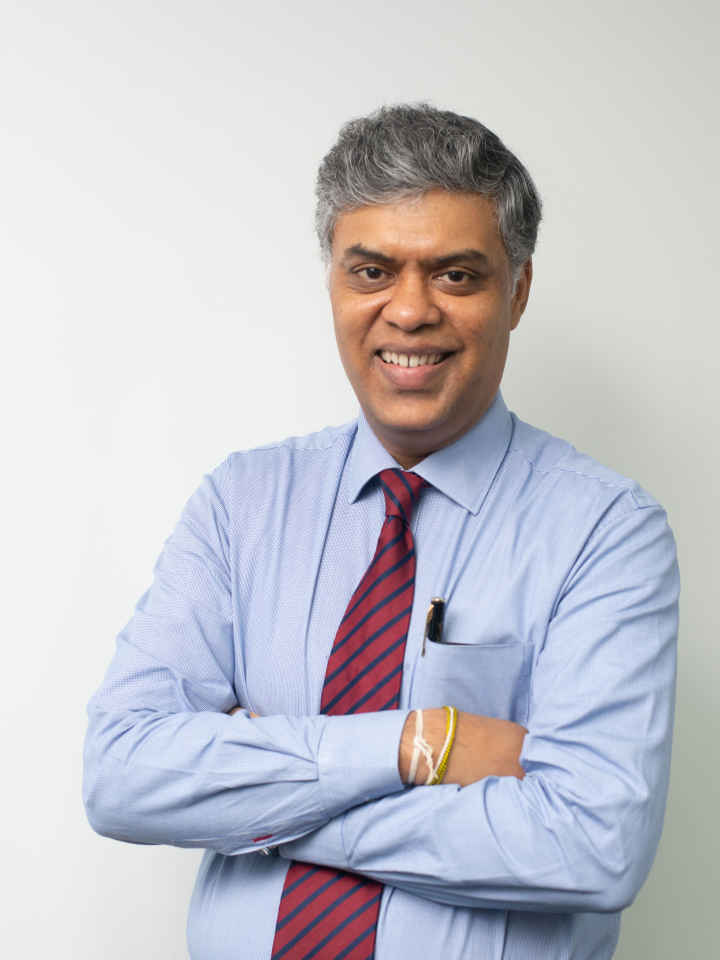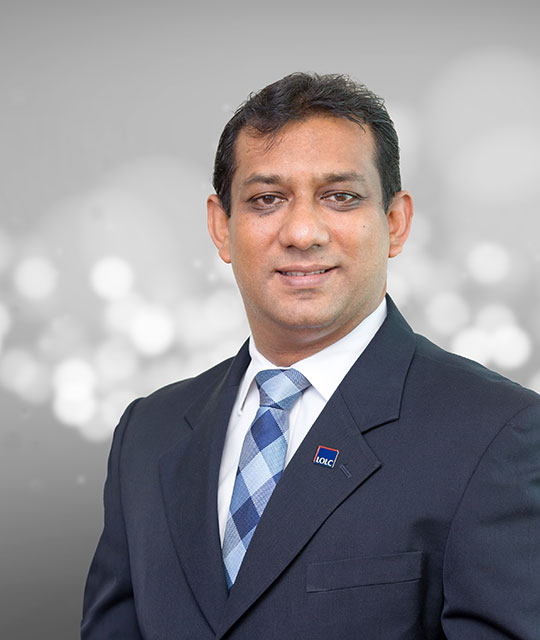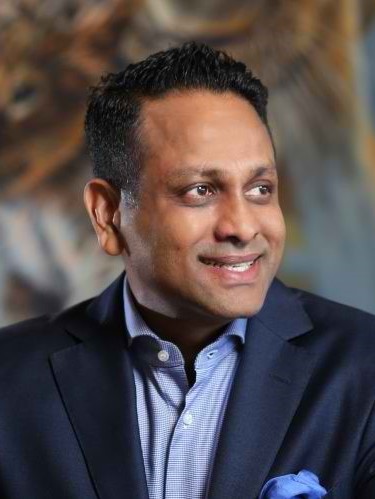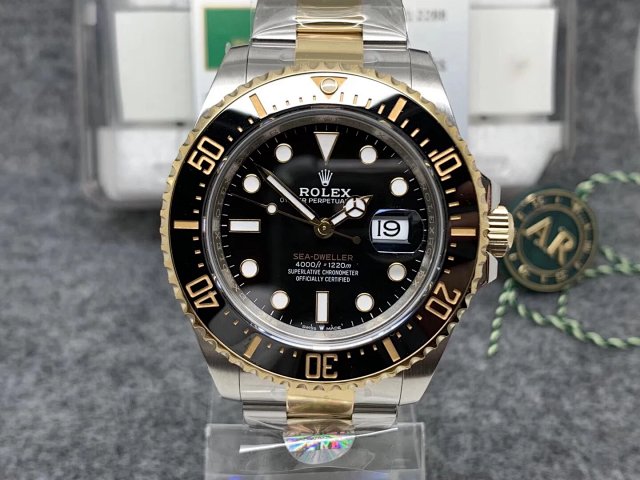interview
Colombo Fashion Week & Working Towards Sustainable Fashion | Ajai Vir Singh
Ajai Vir Singh is the founder of Colombo Fashion Week in Sri Lanka, and the brands Conscience, Pigeon Island, and Arugam Bay. He also co-founded Sri Lanka’s Fashion Design Council with a view to represent the local designers and brand owners, and provide them with a platform on which they have a voice.
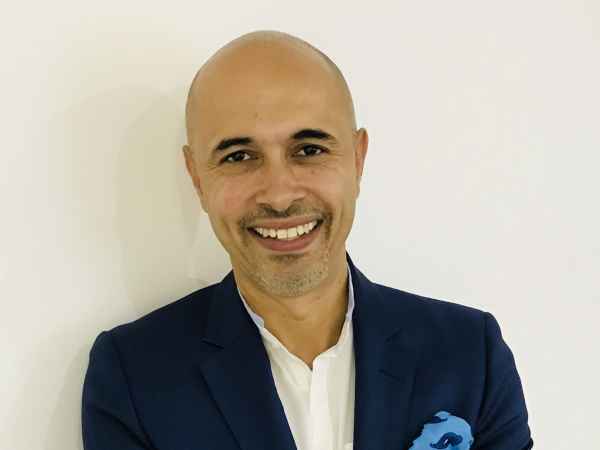
He is also a huge advocate for responsible and environment-friendly fashion – something that he emphasises on repeatedly in his chat with us.
“Sri Lanka Was Not Ready For It.”
When asked if he took the initiative to create a fashion week in Sri Lanka because he believed the local industry was ready for it, Ajai denies it. In fact, he tells us that he believed otherwise.
“You know, it was a market that was struggling, because the civil war was on,” he tells us. “When there are things like civil war, the first thing that gets affected is freedom of mind so it affects creativity.” However, Ajai also recognised the country’s rich heritage in architecture and interior, and knew that there was a lot of potential in the market that was yet to be tapped into.

There’s no such thing as the right time according to Ajai, who believes that “it’s never the right time till you do it” – which is why, despite the ongoing civil war and the tsunami that followed the year later, he continued to push forward his agenda for a fashion week in Sri Lanka without waiting for the country to be ready for it.
Colombo Fashion Week: “The Most Glamorous Business Meeting”
Having launched the fashion week back in 2003, it is now one of the most highlighted, talked-about event in the country. “It’s an evolving process,” Ajai comments when asked how the program is run, referring to the ever-changing trends in the industry.
He explains that applications are opened for both established and emerging designers, before requiring them to submit their ideas, sketches, fabric choices and collections plans. “And then we have meetings and decide based on that who’s fit enough, ready enough to be on the ramp. And we give them constructive feedback so they [can] rework on it and come back.”
Styles are always changing though, and every year the CFW has to keep up with those changes. “Fashion is something [that] changes, it reflects society, reflects the mood of the society, the emotions the society carry. So designers need to really be up to date with that… We basically check how tuned in designers are, how relevant their ideation is. Because I tell people who come for fashion week that it is the most glamorous business meeting, so when you come, you need to sell clothes.”

Last year, they took another step to better the process behind CFW. “It’s called a responsibility meter,” Ajai says. “We launched it last year in the middle of the pandemic [to] have a responsible meter rating [as] an eligibility criteria to show at the fashion week.”
It’s another step in the plan is to make sustainability in fashion the default mode for designers.
Garments Without Guilt — Promoting Ethical Fashion:
‘Garments without Guilt’ was started by Ajai as his gateway into sustainable fashion when he conducted a research on Sri Lanka’s apparel industry and realised that it was very clean in comparison with the industry in South Asia’s as a whole.
“And there were some really progressive thinking people who accepted this idea – and then this idea never looked back. It won awards in New Work, [in] Australia, Hong Kong… and that one year really got me to understand how poorly the fashion and apparel industry [is] performing in terms of environment and society, and how massive commercialisation [will] lead to a lot of degradation in environment and society.”
He also adds, “In 2012, we did the first ethical fashion day for Colombo Fashion Week. And then in 2017, we launched the responsible fashion movement… And then we launched something called the responsible fashion summit in 2018.”
Having been completely invested in pushing this agenda forward, Ajai informs us of yet another step taken to promote this ideology. “We actually developed a curriculum for any university to kind of follow and take the curriculum. It’s a 10 hour credit curriculum that teaches how to design responsibly.”

When asked about his brand Conscience and how it ties into his movement for responsible fashion, he explains the meaning behind its name: “that was the reason for Conscience, to say if your conscience is clean, it’s good, but [the] fashion industry’s conscience was not clean so it was like a pun.”
According to Ajai, being ethical and sustainable are two sides of the same coin and neither element can be taken out of the environment within a responsible fashion industry. “When you create fashion, you have to look at your supply chain,” he says. “When you break it down to a garment that is created… there are a series of choices we have to make. It’s a whole supply chain, we can’t leave one out… every time you start designing a new garment, your sustainability journey starts on that garment. So you can’t leave anything out of it. You have to go through the entire step.” He also adds, “You wanting to be sustainable, being intentional about it, is half the battle won.”
Fast Fashion: “It’s Very Degrading”
“I personally don’t like fast fashion,” Ajai says when asked about his opinion on this branch of design. “Because it [takes] the dignity out of design. Because design is supposed to be appreciated, kept with you over a period of time because someone’s hard work has gone in.”
However, with private companies buying fashion labels from artisans, the industry has increasingly become money-driven. “They wanted to make bigger chains who would replicate a design fast and make it cheaper, [and] then after a certain amount of selling time has finished, they need to finish the stocks so they’ll go into 50% sales, 70% sales, 80% sales.” He mentions that stocks unsold is discarded of and burnt, only for the next new style to be brought in.
Artificially inducing purchases is something that he finds degrading about fast fashion – and when conducting a program last year on responsible wardrobe, this was only further highlighted. “We found out that 30% of your wardrobe is used most of the time and 70% is not. That 70% is basically what goes to the landfill and messes up the environment.”
Success — Its Meaning & Tips To Achieve It:
When asked what his definition of success is, Ajai responds with: “I give myself goals, and if I meet those goals then I’ve touched success.” His goals are constantly changing as he sets new milestones for himself to achieve.
He stresses on how important it is for us to have a dream and a desire. “Otherwise your life is compromised. You need to have a dream and a desire, and then you need to work towards it.” He adds, “Success is not money. Success is not fame. Success is a goal that you’ve given yourself and you chase that goal and [once] you’ve got it, you’ll see fame follows, money follows.”
He leaves us with three key pieces of advice that he wants us to take away from his experience in the entrepreneurial world:
-
- “Be hungry.” He urges us to always push forward for more, to be eager and ambitious enough to draw ourselves a map to our desired destination and plan how we’re going to get there.
- “You can’t go anywhere without a goal,” he says. “Goals can be broken down into dreams, desires, things you want to accomplish, but you need to have that.”
- It isn’t only enough to be map out our journey give ourselves goals. As Ajai mentions, we also need to be committed to chasing them. “You need to be very passionate about that goal.” He finally adds, “Once you’ve given that to yourself, everything else will work around it.”





